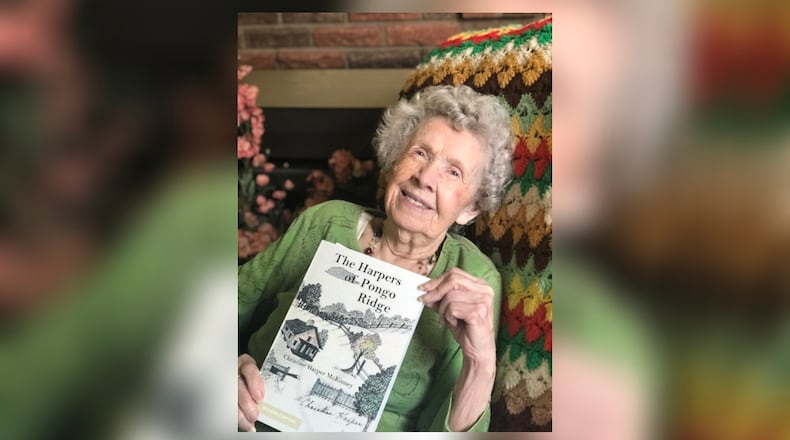Born in Rockcastle County, McKinney, now a resident of West Chester Twp., first wrote this book more than 30 years ago by typing the pages on a typewriter. She sent her husband to a print shop to have 50 copies made. She gave most of them away, and soon the book was no longer available.
“I had no idea that I’d be updating and re-publishing my book in my 90s. I thought I should be crocheting and rocking in my chair,” McKinney said.
According to the Appalachian Regional Commission, Appalachia crosses through 13 states and boasts 26 million residents. Between 1920 and 1950, millions of Appalachians left their mountain homes stretching from southern New York to northern Mississippi and migrated to urban areas to gain employment.
McKinney tells all the stories of her growing up including a near-death experience at the age of four. The childhood tales acquaint the reader with the family values and strength of a people who found ways to move forward, live boldly, and survive hardship.
“We grew everything we ate. We never went hungry,” says McKinney. Her family ate cornbread twice a day since they raised corn, and they ate pinto beans regularly. “We always had meat because we raised hogs and chickens,” she says.
Dale Farmer, writer and director of film “The Mountain Minor,” used McKinney’s original book to authenticate small details of life when writing the screen play for the film. Farmer’s film is about the people and culture behind the resurgence of American Roots music today as well as the difficult circumstances of human migration of the Appalachians.
McKinney actually knew Farmer’s grandparents and had written about them in her book. “We’ve stayed in touch over the years, and I prompted her to re-publish the book. I’m thrilled to see the updated version,” Farmer says.
“Not bad for a girl who didn’t finish high school,” said McKinney, who married during her junior year of high school. “My high school granted me a diploma in 2020 when I was 95.”
Also a product of rural Appalachia, Nora Stanger, Coordinator of Appalachian Outreach at Sinclair Community College, says reading the book took her home. She loved the description of the general store being the community meeting place where men would surround the potbellied stove with a spittoon nearby.
Stanger identified with McKinney when she read that she didn’t know the definition of poverty because “we never knew we had it.”
“When McKinney describes her father’s talent for storytelling, I immediately thought of the tall tales my granny and mom told when I was a child,” Stanger says.
“The Harpers of Pongo Ridge” describes how McKinney would ride a little mule to the country store in Pongo and hitch it to the post while she bought penny candy. “I collected pennies when my father and his friends played music. My sister and I would dance a little,” she says.
After marrying her husband and living on the family farm for a year, they left for Ohio. McKinney devoted her early years to household duties and motherhood to her four children. She also assisted her husband in the operation of his business in Reading, Ohio.
After retirement, McKinney enrolled in art school and continued hobbies like crocheting and needlework, but nothing could satisfy her thirst for writing. “I wrote poetry when I was in school and thought this was my life’s work,” she says.
Even though significant improvements have been made in terms of poverty and education, Appalachia is behind the national average, according to the Appalachian Regional Commission. Work is still needed for the region to recuperate.
About the Author
